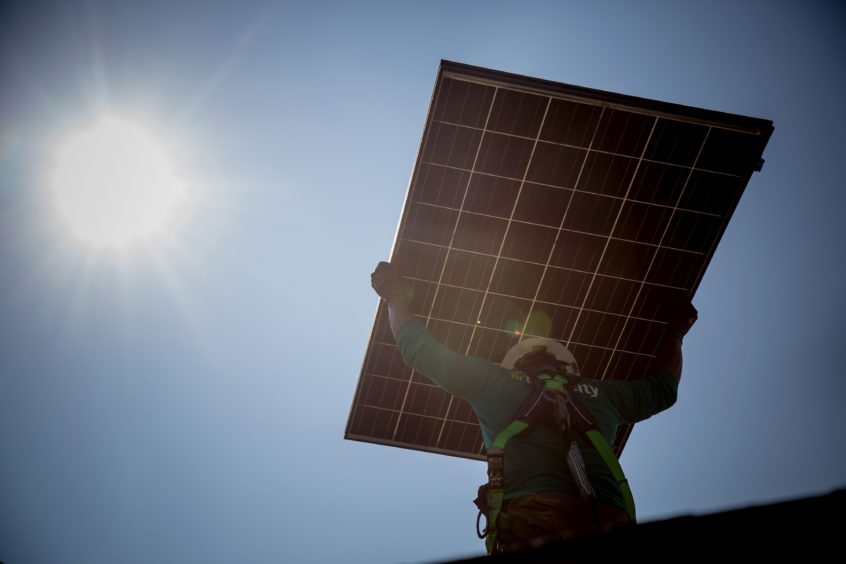
Scientists claim to have developed solar power technology that produces energy even when it is cloudy and wet.
Researchers say their co-called “British weather proof” technology is cheaper, more energy efficient and more flexible than traditional solar panels – and can convert solar energy to electricity in low light conditions.
The team believe their work, published in the journal Nature Energy, represents a “significant step” towards making the technology commercially viable and contributing towards global renewable energy targets.
Professor Lianzhou Wang, from the University of Queensland in Australia – who led the research, said: “Essentially, we’ve developed solar technology that is British weather proof.
“It can produce energy indoors or even when it is cloudy and wet.
“It is also printable, flexible and transparent – meaning it could be used as a skin to power next generation electric cars or applied as a film to windows on buildings and homes.”
The technology uses tiny nanoparticles – called quantum dots – that are about five billionths of a metre in size and can be put into liquid form and printed onto surfaces, where they harden to form a flexible layer.
When exposed to solar energy in a solar cell device, these quantum dots pass electrons between one another to generate electrical current.
Prof Wang claims to have achieved a 25% improvement in solar cell efficiency over the previous world record.
He said: “This opens up a huge range of potential applications, including the possibility to use it as a transparent skin to power planes, homes and wearable technology.”
“This new generation of quantum dots is compatible with more affordable and large-scale printable technologies.”
Recommended for you
